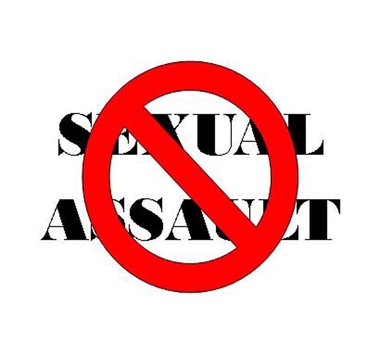Kansas City group opens LGBTQ domestic violence center

Kansas City, Mo. (AP) — A quiet office in a busy entertainment district is a rare space for LGBTQ people to find help in times of crisis or to meet others for support and friendship.
The Kansas City Anti-Violence Project's new domestic violence and sexual assault services center also is the only such center in Missouri, Kansas, Nebraska and Iowa, filling a gap for a population of gay, lesbian, bisexual, transgender and queer people who often struggle to find help in domestic violence situations. Other services — such as food, clothing, job counseling and legal and medical advocacy — are available, too, according to executive director Justin Shaw.
The center also wants to mend the long-standing mistrust between LGBTQ populations and police, Shaw said, noting that only 3 to 5 percent of the organization's clients contact law enforcement in times of need because they don't believe they will be taken seriously.
"They know that if they call here the staff will understand their unique circumstances when it comes to violence," Shaw said.
Many areas of the country have only one LGBTQ anti-violence project and several states have none, said Chai Jindasurant, co-director of Community Organizing and Public Advocacy for the New York City Anti-Violence Project. And the few LGBTQ-specific shelters that do exist are mainly for runaways and homeless, he said.
The Kansas City project was a godsend for Monique Ross, a 23-year-old black transgender woman from Kansas City, who says she was assaulted by an ex-partner, for whom an arrest warrant was issued. Workers at the center, which opened in February and is tucked inside an office building, helped her quickly get a restraining order, find emergency housing, transportation, food and clothing. It also helped her find a job and she goes there for a group meeting with other transgender women of color.
"There was no place to go before. They are there for you all the time, with all kinds of help," she said. "I'm a very bold woman who is very out about being transgender. There are a lot of men and women who are much more reluctant because of the way society is and it's good to meet each other."
Advocates say understanding in public understanding and relationships among LGBTQ populations and government have improved somewhat since Congress in 2013 included them in the Violence Against Women Act. The law now requires shelters to take LGBTQ domestic violence victims, while providing federal funding for some advocacy organizations and allowing states to use grants to improve responses to domestic violence.
Though based in Kansas City, the KCAVP trains people who work with LGBTQ domestic violence victims throughout Kansas and Missouri and is contracted to do some training in Iowa and Nebraska. But if domestic violence victims in Iowa and Nebraska call, the center's staff members can only connect them with people and resources in those states, Shaw said.
"It weighs heavily on us that we are not able to do more ..." he said. "But because of the federal changes, service providers in all states are starting to realize they have to provide those services to everyone if they want to continue to receive federal funding."
Most LGBTQ domestic violence victims to rely on mainstream domestic violence programs and shelters, Jindasurant said. And Joyce Grover, executive director of the Kansas Coalition Against Sexual and Domestic Violence, notes that many of them do not feel comfortable at traditional communal-living shelters, which largely house heterosexual women. So, several organizations have already been working for years to train shelter staff about their needs, she said, and the 2013 federal changes help.
"To me, the KCAVP project is one more step moving us forward," she said.
The larger goal remains teaching the public that domestic violence is widespread and involves power and control, regardless of sexual orientation or gender identity, according to Ruth Glenn, the executive director of the nonprofit National Coalition Against Domestic Violence. One in three women and one in four men have been physically abused by an intimate partner in their lifetimes and on a typical day, domestic violence hotlines nationwide receive about 20,800 calls, according to coalition statistics.
"(The Kansas City center) is a good sign that there may be some improvements" Glenn said. "But I hesitate to say that because I'm aware we have a long way to go."
By Margaret Stafford, Associated Press. Copyright 2016 The Associated Press. All rights reserved. This material may not be published, broadcast, rewritten or redistributed.
The Gayly – March 13, 2016 @ 11:10 a.m.





